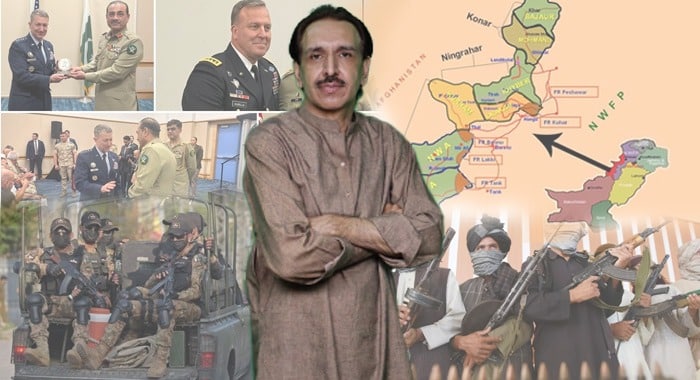The operation underway in Bajaur, Khyber Pakhtunkhwa, was not just an option—it became an inevitability. For days now, the Pakistani military has been meticulously executing this operation, proceeding with care, and even slowing down to ensure minimal collateral damage. This strategy is critical, not just because of the nature of the threat, but because of the way the terrorists have embedded themselves within civilian spaces—mosques, madrassas, and even schools. These aren’t just operational sites for militants; they’ve become shields, making the operation infinitely more complicated for our forces.
A month ago, when negotiations failed, the state had no choice but to act decisively. While many might criticise the timing or the intensity of the operation, it was clear that if the state had waited any longer, the threat posed by these militants would have grown uncontrollable. The ongoing violence and instability in Bajaur and surrounding areas left the authorities with no real alternatives but to strike, even if the risks were high.
But let’s talk about the people of Bajaur—their cooperation is not just valuable, it is absolutely essential. There’s been resistance, yes, especially from political figures and certain local leaders who have struggled to acknowledge the presence of terrorists in their midst. But the people themselves, tribes and the Jirgas, are starting to realise the gravity of the situation. They know that these militants, who’ve taken refuge in their homes, cannot be allowed to continue destabilizing their lives.
In the past, Bajaur was a place where we saw militants using the porous borders with Afghanistan to infiltrate and take refuge. Today, it’s even more crucial to deal with these threats across multiple tribal districts, like Mohmand and Khyber. These areas are interconnected. If we clear Bajaur without tackling Mohmand and Khyber, we’re simply creating a vacuum—one that the militants will exploit. In a matter of hours, they can move from Bajaur to Mohmand and vice versa. This is a classic guerrilla warfare tactic, and we need to address it strategically.
Unfortunately, the provincial government’s response to the displacement of civilians hasn’t been satisfactory. Yes, the government is trying, but the ground realities are far harsher than anyone expected. People are fleeing with minimal resources, and their needs are overwhelming. And while there is some relief coming from organisations like Al Khidmat Foundation, Khudai Khidmatgars, and Hilal-e-Ahmar, the government must do more to step up its support for these displaced families. The strain on local resources—like water, medical facilities, and food—is glaring.
Still, I can’t deny that Pakistan’s diplomatic relations have taken a positive turn recently. The dialogue between Pakistan and the U.S., particularly in combating terrorism, has reached new heights. For the first time in years, we’re seeing serious cooperation at the highest levels—talks to counter all forms of terrorism, with a focus on extremism and regional stability. Pakistan’s counter-terrorism policy has now been acknowledged and supported by major powers, including the U.S. and China.
What’s even more remarkable is the way these talks have unfolded. Just last week, the U.S. took significant steps by designating the Baloch Liberation Army (BLA) and its suicide wing, the Majid Brigade, as foreign terrorist organisations. This is not just symbolic; it’s a practical step in addressing the growing influence of separatist movements. This sends a clear message that Pakistan’s fight against terrorism is not isolated—it is a shared priority in the international community.
Even China has praised Pakistan’s efforts, which is not something we hear every day. Given the nature of our geopolitical situation, having both China and the U.S. acknowledging our counter-terrorism policies is no small feat. I believe Pakistan’s strategy is finally starting to bear fruit, as we continue to engage with the world while maintaining a balanced approach.
But let’s not forget that all of this, our military actions and diplomatic successes, are only meaningful if we ensure long-term stability at home. The people of Bajaur, Mohmand, and Khyber need to feel the benefits of this operation—not just in terms of security, but through tangible improvements in their lives. If they feel abandoned by the state, the fight against these militants will become much harder.
In the end, Pakistan’s counter-terrorism efforts are not just about pushing out militants from one area; they are about reshaping our entire strategy. We are learning from the past, and making adjustments for the future. We need not only military success but also social and economic rebuilding. We need clear policies that go beyond just eliminating terrorism to creating a society that is resistant to it.
If we can do this, if we can show the people that their sacrifices lead to lasting change; then, and only then, can we truly claim victory.





